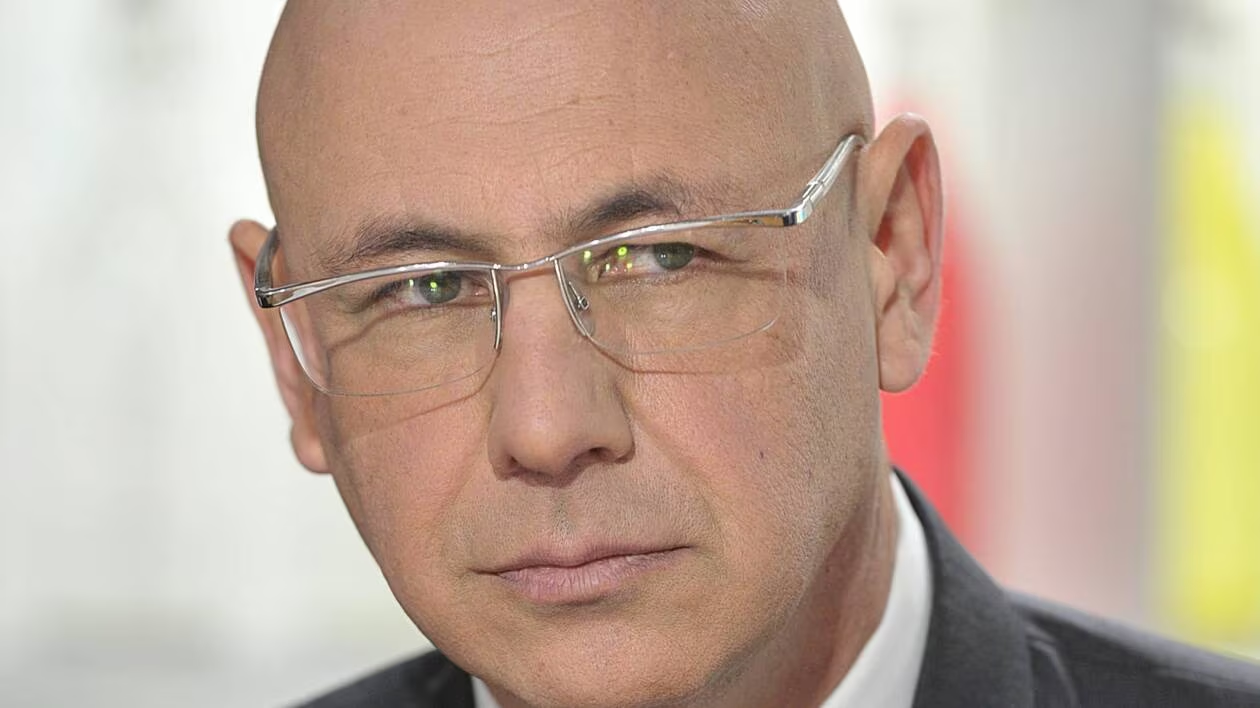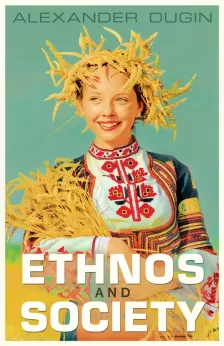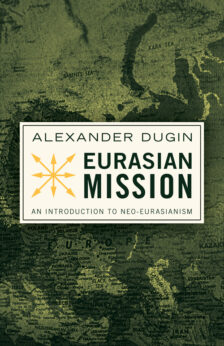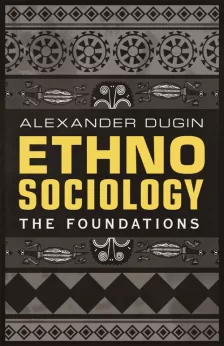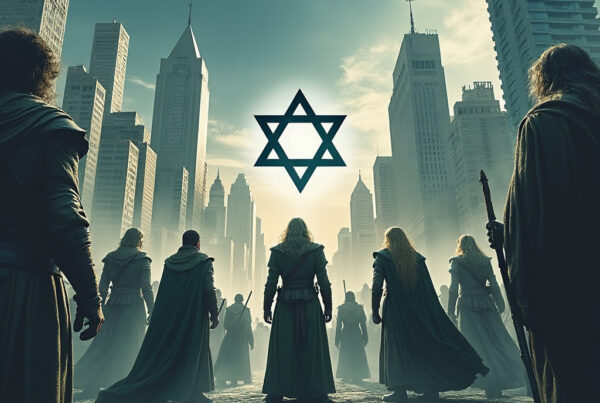Would you introduce yourself and your background for those readers who are not yet familiar with you?
By profession, I am a teacher. I am from a family whose involvement with the ‘wrong side’ goes back to the time of the French Revolution and the uprising in the Vendée. So, naturally, I got into politics in 1969 in the same camp as my family. What differentiated me from my family, which was closely related to the royalist and reactionary current, is that I quickly joined the nationalist revolutionary movement.
Thus, from the early 1970s I was a militant in the New Right groups who went on to succeed: the Organisation lutte du peuple, the Groupes nationalistes révolutionnaires of François Duprat, and then the Mouvement nationaliste révolutionnaire. I was a simple activist at first, but I later became a branch organiser before entering the French management of this ideological trend in the mid-1980s. Successively, I have been Secretary-General of the movements Troisième Voie, Nouvelle résistance, and Unité radicale, and was one of the leaders of the pan-European movement Front européen de liberation.
From 1998 to 2002, as part of the strategy of the group Unité radical, I led the faction called ‘radical’ in the Mouvement national of Bruno Megret, and I belonged to the National Council of this party, for which I stood in various elections.
Since 2002, I have gradually moved away from activism in tiny groups and joined the Front National, where I have subordinate responsibilities at the local level.
Currently, the bulk of my work involves writing. I have run the magazine Résistance since 1997; I am the French correspondent for the Italian nationalist-revolutionary daily Rinascita, and, since November 2008, I have been an associate editor in charge of the international pages of the biweekly Flash. I have worked both under my own name and under a pseudonym with many other publications, including Réfléchir et agir, Eurasia, and Nations presse magazine.
On the internet, I am the editor of Voxnr.com, and my articles are widely cited on the web.
Besides all this, I am the owner of the publishing house Ars magna, and I am an associate publisher at Éditions Avatar.
You are often described as a leading exponent of the national revolutionary current. Some of our readers may not be familiar with this. Would you give a presentation of the national revolutionary movement, its history and vision?
We can give several definitions of revolutionary nationalism, all valid and yet competing. Arguably, it is the European counterpart of the national liberation movements in the Third World. It is a component of a larger political entity which is the Conservative Revolution, and it is a ‘centrist’ current which rejects the notions of Right and Left in favour of the ideological unity of the people. A French author, Fabrice Bouthillon, has explained this in a recent article: ‘It’s an attempt to revive what had been undone by the French Revolution, and which multiplied across Europe after 1789: these attempts at a compromise between the Right and the Left that constitute centrism. … There are two types of centrism, either by subtraction or by the addition of extremes.’ It is precisely the model of the latter which is in fact radical centrism, and combining the extreme Left and extreme Right is revolutionary nationalism.
From a historical perspective, almost all European countries, or those populated by people of European descent, have developed revolutionary nationalism at one time or another in their history, such as Jonsisme in Spain, Peronism in Argentina, or the movements around Niekisch, Jünger, or Strasser in Germany, and so on.
In Third World countries, varieties of revolutionary nationalism currents can also be identified, such as Nasserism or Ba’athism.
Would you name some of the people who inspire you?
It is always difficult to do this. The big risk is to merely name-drop and nothing more.
That being said, I fully realise that my thought is indebted to a number of people, so I can mention some names of authors who have had a fundamental influence on me.
There is of course Alain de Benoist, who put ‘the ideas in place’ (Les Idées à l’endroit is the title of a book by Alain de Benoist – ed.) for me. Then there were Julius Evola and – to a lesser extent – René Guénon who gave me a ‘worldview’, and Alexander Dugin and Jean Thiriart who taught me geopolitics. Not to mention François Duprat, whose footsteps I have followed in for almost forty years.
We are both inspired by Jean Thiriart and his vision of a Europe ‘from Dublin to Vladivostok’. How would you describe the current European Union? Does it hold any potential for a European future of the sort Thiriart worked for?
It seems to me that the Europe which is organised in Brussels grows a little further from the Europe of which we have dreamed each day. I hoped for a while that the devil would step aside, and that a European power might arise from the European Union.
In fact, it has not happened, and instead of a powerful Europe, we have a large common market which is soft on multinational corporations and hard on the people, and which is geopolitically impotent because it is too big and divisive.
When we had a little Europe, when we were only nine or twelve countries, we could have hope in the European Union. We could think that it might become an alternative. The ‘greater’ Europe as we know it now currently includes twenty-seven countries, and it has not finished growing. It is becoming less governable and more open to American influences. This is no longer a geopolitical construction; it is merely an economic construction.
At the same time that it grows in size, this Europe is divided along bases that are no longer national but regional or ethnic. Of course, to defend local identities is a commendable commitment with which we all agree. But there is also a risk of an unintended consequence, a perverse drift, which ultimately leads to the promotion of the breakup of Europe and its weakening. And this, unfortunately, is the approach taken by the various identity groups which are active at the European level.
Their Europe of a hundred flags is a Europe with a hundred Kosovos!
It is a Europe where all solidarity disappears, and where we arrive at positions odious and grotesque, such as that of the Breton identitarian leader who said that in Brittany, he saw no difference between a French immigrant and an immigrant from Africa!
It also divided Europe even more than it is now, so that the weakest components are becoming further manipulated, and ultimately Europe will become completely helpless. We could end up with a Europe comparable to Germany after the Treaty of Westphalia, divided into 350 states, which for over 200 years saw its history being written by others.
When I see that those who advocate the dismemberment of our country and Europe at the same time dare, in defiance of geopolitical reality, to campaign on the theme of Europe’s power, I can only speculate concerning their intelligence or sincerity.
What is your analysis of the relationship of Russia, Turkey, and North Africa with Europe?
A strong Europe, acting in a multipolar world, would have friendly relations and cooperation with these geopolitical areas. But Europe is so weak…so at present these relations are unimportant, as we have seen in connection to the Tunisian and Egyptian crises.
With Russia, we want a strong and deep alliance structuring our continent around the axis of Paris-Berlin-Moscow.
The Maghreb countries have been linked to us by geography and history since ancient times. The Mediterranean should unite and not divide us. But still, it would not be possible to really make it a Mare Nostrum without first ending the presence of the American navy, and without stopping the influence of the agents of Langley in the states that border it… A proactive policy of development should put an end to immigration from the south to the north.
But for this to succeed, as with the alliance with Russia which I mentioned earlier, it would require political will in Europe, in spite of the absence of a pivotal country in it. But this will not happen with the European Union, and it has not existed in France since the end of the reign of Jacques Chirac.
As for Turkey, its fate is not to enter the European Union, as desired by the US, but to establish a regional geopolitics with Syria, Iran, and Iraq.
What is your vision of a better social and economic system?
Economically, I’m Keynesian, favourable to a strong state intervening proactively in the economy and organising a more even distribution of national wealth and well-being. I fully agree with what has been called in France an ‘authoritarian Colbertism’, in which ‘the state directs capitalism’.
For me, economic liberalism is the absolute evil. From it is derived everything that is undermining our societies.
What is your opinion of the alternative encyclopaedia Metapedia?
This is an excellent initiative which I helped to develop in France.
It is important that our history is written by ourselves and not by our enemies. Indeed, in the latter case, they distort it and, by that very fact, disturb the perception that we have of ourselves.
However, visiting the various versions of Metapedia, I have often been distressed by a tendency toward the politics of nostalgia and a focus on a very particular and very short period of European history. Yet the history of our continent and the nationalist movement is much more than that.
What is your analysis of Nicolas Sarkozy as a historical phenomenon?
Firstly, the election of Nicolas Sarkozy as president looked like a huge misunderstanding. While professionals, the upper middle class, and urban voters mainly voted socialist, it was the votes of the majority of the workers and the downgraded middle classes, typically far from the major urban centres of economic and cultural dynamism, that allowed Sarkozy to rise above 30% in the first round and win the second.
There is a paradox: the neo-liberal candidate was elected president thanks to the populist classes, but these same voters have in no way approved Sarkozy’s economic programme. Rather, they asked him to use his authority to save those social benefits which are derived from the Left.
If those voters chose Sarkozy because they expected him to fight crime, they also hoped that he would maintain the welfare system. They did not believe that Nicolas Sarkozy’s administration would depart from the Gaullist legacy, destroying its institutions, and sacrificing national independence.
On these three points, popular disappointment has been quick, and the disaffection of the electorate soon followed.
Nicolas Sarkozy was still considered an ally of Washington, even boasting of being nicknamed ‘Sarkozy the American’. He was supported by neo-conservative Yankees, not because they would support any candidate on the Right but because they considered him to be the only major French politician who embodied their ideas. For them, it was their hope of ending once and for all the two-headed hydra, consisting of what remains of the French social system and the independent foreign policies of France. His victory represented a subservience of France to powers from abroad such as there has never been in the past, except as a result of military defeats.
What is your position on Islam and the proper relationship between Europe and the Islamic world?
In this matter we must guard against essentialism and any irrational reaction.
Like any great religion, Islam has multiple forms, and we must take this into account. Denouncing Islam in its entirety, as I see many nationalists and identitarians doing, is just silly and worthy of an IQ in the double digits.
You can have a traditionalist approach, which is to oppose a ‘good’ Islam to an ‘evil’ one, namely the Shi’ite and Sufi branches versus the Sunni and Wahhabist factions. It is an analysis which, moreover, goes beyond the traditional outlook and is also quite useful in terms of our understanding of international politics since the Shi’ites are on the side of resistance to globalisation, while Sunnis have a tendency to get into bed with Uncle Sam…
Writing this, we must also consider that Europe is not the land of Islam and that the Muslims who live here are only latecomers… As such, it does not seem so shocking to me that they want to have decent places of worship and cemeteries in reserved places, for example. But at the same time, it is necessary to remind them that they live among us, and as such they must adapt to our customs – including in terms of architecture, cuisine, and manner of dress – and not require us to do otherwise. It is for them to assimilate if they wish, or to go back to where their ancestors come from. It is not up to us to make efforts to adapt ourselves to them.
What is your position on the question of Zionism and its relevance for Europe?
I agree completely with the idea of Stanislas de Clermont-Tonnerre, who stated in 1789 that ‘we must refuse everything to the Jews as a nation and give everything to Jews as individuals’.
Clearly, I think we should clearly differentiate between two things: those practicing the Jewish religion and Zionism as such.
The former are entitled to respect, safety, and the exercise of their faith in complete freedom. But it seems strange that, as a community, they can invoke extraordinary benefits from common law, as is sometimes the case.
As for Zionism, it is for me a late nationalism without justification in terms of people or nation, unless one believes in the legend, so archaic that it is laughable, of God designating a people as his chosen ones and awarding them a particular land… As a result of the Zionist leaders who managed to embody their fantasies in the form of a state, we are facing a problem that is a potential source of regional or even world wars.
On the one hand, there is an illegitimate colonial state that has been in existence for over half a century – which is nothing when compared to history in its entirety. It seems to me that we must find a political solution, and the most sensible one is that of a single state, secular and democratic, encompassing the whole territory of historical Palestine. To some extent, it could be a solution such as there is in South Africa: a state and a democracy based on the principle of ‘one man, one vote’, and a truth and reconciliation commission to pardon the misdeeds of the two camps.
But Zionism is not only the State of Israel. To ensure its existence, its leaders have developed structures of influence in most foreign countries, from lobby groups to the use of sayanims (intelligence advisors). But this is unacceptable. We cannot tolerate a foreign country acting covertly on our soil in order to influence our foreign policy in its favour. We cannot tolerate it when French nationals, or nationals of other European countries, see themselves as being more closely connected to a country where they don’t even hold citizenship, let alone reside. For these reasons, I consider that Zionism must be fought in all its manifestations on European soil.
In addition to this, there is another problem, namely nationalist Zionism, meaning aligning oneself with the interests of Israel as a part of the nationalist movement in European countries. There is the case of the Vlaams Belang in Belgium, the Bloc identitaire in France, Geert Wilders in Holland, and so on. These groups are fascinating because of their overall drift. Their love for Israel is only one element in something very much larger: they have become – if they were not originally, as in the case of Wilders – Westerners, ultra-liberal, neocons, and so on. And they now hold positions opposite to ours. They must therefore be denounced and combated.
Finally, do not be deceived about who the enemy is. The only true enemy is liberalism. Everything stems from it.
